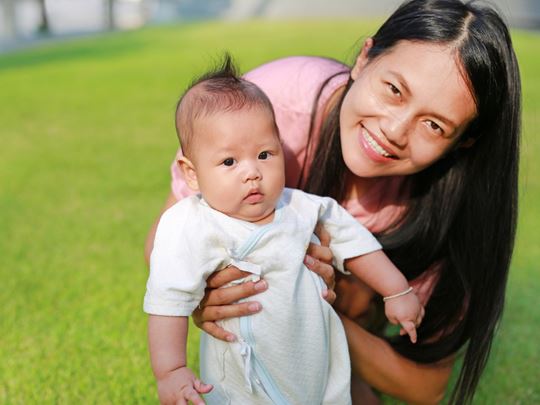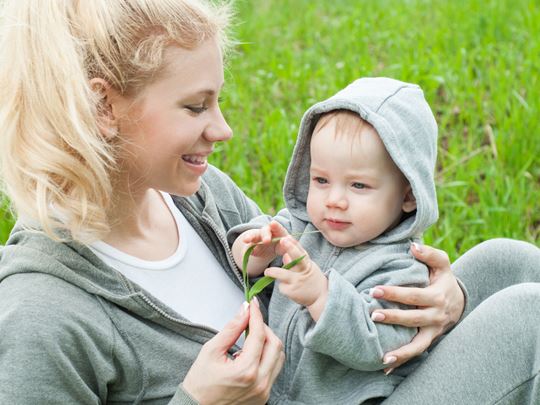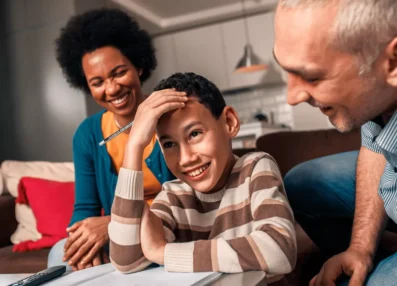Mother and baby fostering is one of the many different types of fostering available at FCA, and it’s an amazing opportunity to open your home to not just a vulnerable child, but one or both of their parents too.
There are still a lot of questions about how fostering a mother and baby works, and whether it’s suitable for a first-time foster carer or a more experienced carer.
In this article, we’re going to bust some myths about mother and baby foster placements and answer any niggling questions you might have about parent and child fostering.
What is mother and baby fostering?
Mother and baby foster placements – or parent and child fostering – is a specialist type of care designed to give young or vulnerable new parents extra support and guidance. It could be a single mother, a single father or sometimes both parents.
These young parents need additional support when it comes to taking care of both themselves and their child. There are many reasons why this might be, but the primary goal of this type of fostering is to keep the family together by helping them learn how to care for a baby while learning essential life and parenting skills. This is where the work of a foster parent comes in.
So why might a parent need this additional support?
A parent and their child may need to stay with a foster family for a number of reasons.
- They might have no parenting experience and need to learn key skills in a supportive environment.
- Their current living situation isn’t deemed safe for themselves or their baby.
- They could need additional support because they’ve been the victim of domestic violence.
- They’re struggling to bond with the baby and isn’t meeting their developmental and emotional needs.
- If the parent is under 18, they could be a looked-after child themselves.
Do mother and baby foster placements work?
There are a bunch of different reasons why mother and baby placements might be necessary, but the bottom line is they need an experienced parental figure to help them learn the life skills to become a better parent themselves. This helps them confidently take on the future with their child independently.
Mother and baby fostering gives parents an amazing opportunity to learn how to parent their child in a safe and secure environment. By achieving this, they can prove to themselves, as well as others, that they have the ability to parent, actually want to do it, and do it well.
In the majority of cases, parent and child fostering works, and for those cases where it might seem impossible, we’re there to help do everything in our power to make it happen.

What is the foster carer’s role when fostering a mother and baby?
If you choose to become a foster parent to a mother and baby, then you’re not only changing one life but two (and sometimes more!). You’ll be creating a safe and secure space for a young parent who needs love and guidance, to help them create a more positive future for themselves and their family.
It can be a challenge, but it’s also incredibly rewarding.
You’ll be helping the parent feel secure and motivated to work towards a happy outcome through assessments, record keeping, report writing, and by building a positive bond to help them achieve the parenting skills they need to succeed.
You will be observing all the time, and stepping in whenever needed, as well as keeping notes for assessments. Remember, you’re there to not only teach parenting skills but support the parent without judgement and always with empathy and understanding.
Some of the areas you’ll support your parent with include:
- Helping them feel good about themselves.
- Comforting and supporting them.
- Supporting them during a time of crisis.
- Helping them to develop parenting skills no matter their community or cultural background.
- Helping them understand their child’s development so they can respond to their child’s changing needs.
- Helping them feel valued and worthy.
- Giving them the opportunities to develop their parenting skills and knowledge.
The most important role you’ll play is observing and recording how the parent in your care looks after their little one.
Important considerations for parent and child fostering
When supporting parent and child placements, it is important to recognise the difference compared to other types of fostering. This is why the training we provide at FCA is a standalone course. One of the main differences is that you’re likely to have another adult move into your home – unless the mother or father are under 18. You’ll want to make sure you’re all following the same rules and respect each other’s boundaries and privacy. At the beginning of any parent and child placement, there is a range of agreements and paperwork completed by everyone so all expectations are made clear.
Where do babies sleep in a parent and child placement?
The baby will sleep in the parent’s bedroom, that should be free from any trip hazards, choking hazards and accident hazards. For health and safety reasons, cot mattresses need to be changed with each new baby a parent and child foster parent looks after. From a safeguarding perspective, foster parents may need to enter the parent’s bedroom if they have any concerns about their welfare, such as the baby continually crying. The use of baby monitors is something that’ll be discussed and outlined in the agreement, such as when they’re turned on and off, to maintain a sense of privacy.
Is mother and baby fostering okay if I have birth children?
As with all foster care, it’s a hands-on, dedicated job. You’ll be giving guidance, support and parenting tools to young people who sadly don’t have all the skills they need yet to confidently raise their child. You may also have a couple and their baby come to stay with you. Having birth children at home could present a lot of challenges, but please do get in touch with us about your situation so we can discuss the possibilities.
Who buys the equipment in a parent and child fostering placement?
Our placements team will try to establish what equipment or items the parent will bring with them. As a parent and child foster parent, you need to have the equipment to care for a baby as in some instances, you may just be required to care for the baby if it’s deemed best for the parent to leave. When the parent and child arrive, it’s important to do an inventory of valuable items they have arrived with and also record any items being loaned to the parent whilst staying in your home. These lists can be used when the placement is coming to an end.
Does contact still happen in mother and baby foster care?
It should be remembered that every parent and child will have different needs, a different plan and the request from the LA and/or court may all be different. Contact with the parent and child’s family is still an important aspect of their growth and healing, but you won’t be solely responsible for transportation and facilitation if the parent is an adult. You should support them, talk through their concerns and listen to their worries, because contact can be triggering for people of all ages. If you feel comfortable and able to support transportation and facilitation, then this will be discuussed in the placement planning agreement.
Do I need any specialist skills to foster a mother and baby?
Mother and baby foster placements would suit someone who already has experience in both parenting and fostering. You don’t usually have to provide full care for the baby (unless it’s deemed necessary), but instead, help and encourage the parent to develop their own parenting skills.
We provide all the foster training you’ll need that covers everything related to caring for, safeguarding, and assessing the family in your care. But you’ll also need to have certain skills such as assertiveness, empathy, discretion, confidence, sensitivity, 24-hour commitment, and great life skills (as you’ll be teaching these to the parent).
As parent and child fostering is a specialist type of foster placement, you will also need to:
- Have a minimum of a year’s experience in mainstream fostering or experience in a relevant childcare profession.
- Have a large spare bedroom and reasonable living space.
- Have evidence of objective record-keeping and report writing.
Don’t forget, the FCA team is on hand 24/7 to help guide and support you, so you’ll never be alone while caring for your family.
Help keep families together with FCA
Learning the skills you need to become a parent is hard for everyone. But without an understanding of what good parenting looks like, no family support, or a traumatic background, it can be even harder.
When you take on a mother and baby foster placement with FCA, you’ll be offering a safe place where a young parent has the opportunity to learn what it is to be a good parent to their child. You’ll pass along your experience, knowledge, and love until they can do it on their own.
And with FCA, you’ll never be alone. We’ll be by your side 24/7 to guide and support you and help with anything you need. Through our specialist training, we’ll equip you with everything you need to change lives, and with our generous fostering allowances, you’ll be able to turn this incredible opportunity into a financially stable career.
If you’d like to find out more about how to keep families together and prevent children from entering the care system, then give our friendly team a call today and ask us about mother and baby fostering. We can’t wait to hear from you.





